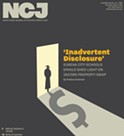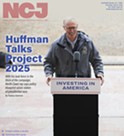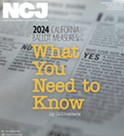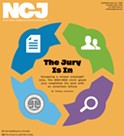[
{
"name": "Top Stories Video Pair",
"insertPoint": "7",
"component": "17087298",
"parentWrapperClass": "fdn-ads-inline-content-block",
"requiredCountToDisplay": "1"
}
]
The immediate appeal of an escape room is the allure of a real-time, interactive game. It's the closest I can get to a holodeck without investing some real dough in a virtual reality rig. As immersive virtual gaming becomes more ubiquitous, the brick-and-mortar entertainment industry has to up its game to get you to leave your house. Leaving the house is a chore and a gamble, where the pros (food, other peoples' dogs) rarely outweigh the cons (putting on pants, making eye contact). Therein lies the secondary appeal of an escape room: a controlled social environment with a time limit and a select team of cohorts. My team consisted solely of fellow On the Spot Comedy member Aaron Cuene. With his sharp intellect and nerves of steel, he was the only team I needed. Also my editor told me to only bring one person, so I chose the person who would be most likely to a) make me look smart and b) talk me down from the panic attack that was likely to be triggered by being locked inside a small room.
The lobby of Escape Eureka (214 E. St., Eureka) is bright and airy; it's clinically calming with large sun-filled windows running along the entire storefront, ferns in planters and clean white walls. It lulls you into a soothed state while owner and guide extraordinaire Alan Sadler walks you through what you're about to experience. I had envisioned the sound of heavily clinking locks, perhaps the unsettling slam of something like a cell door. You're trapped in an enigmatic hell and your only chance for escape is your excellent instincts and innate problem-solving skills.
"You're not actually locked in; the fire marshall doesn't allow that." Sadler's chuckle and polite smile instantly relieved my anxiety. While I basked in my newly found homeostasis, he reached toward my shoulder, saying, "I'm sorry, is it OK if I — you have a spider on you." He then proceeded to remove THE LARGEST SPIDER EVER from the lapel of my jacket. My amygdala snapped back into action, setting my nerves back on edge. An omen, clearly.
Of the two rooms available, the one best fit for a small team is Da Vinci's Office. As he walked us to our door, Sadler handed us a walkie-talkie and reminded us that we could receive three hints. He could give us hints because he would be watching us on a screen in another room. Watching, I assumed, for a chance to laugh at my complete lack of detective's intuition.
After a quick lock demonstration and brief explanation of the mystery to be solved, we were ushered into the room, the door closing gently behind us. There is no way that Da Vinci's office was this organized. The man was an eccentric genius. I had expected piles of parchment and canvas, all covered in combination of charcoal dust and regular dust. But the room is neatly and sparsely adorned: a quick reminder that everything there had a purpose. And the large digital clock with its bright red countdown definitely seemed non-Da Vinci. We had one hour.
It was easy to become complacent with the tidiness of the room. Sadler's advice had been to turn everything over, look closely at each item, take notes. But, upon amateur investigation, the room only had, like, four things. Cuene, though, is much better at seeing through post-spider anxiety than I am. Calmly and clearly, Cuene started assessing everything at hand. Motioning toward the white board and marker on the desk, he began to dictate numbers and an inventory of numbers. I felt absolutely Watsonian, sans doctorate.
There were so many locks, each requiring a different type of dexterity. I'm a high strung and shaky-handed dropper-of-things on a good day. With a camera on me, as I was being flooded with the realization that way too much of my sense of self comes from the approval of others, opening a basic combo lock became nearly impossible. After about 45 minutes, Sadler's voice came over the walkie-talkie, "Would you like a hint?" Cuene tells me that my face and body became noticeable relaxed after I heard him reply, "yes."
We ended up taking all three hints and still not making the one-hour time limit. We were allowed to play on, though. I think Sadler could tell I really needed to finish the puzzle. Nice guy. I'd like to think my lack of fine motor skills isn't the reason we didn't beat the clock. My poor eyesight could also have a lot to do with it. Those details, those tiny clues, they're hard to see.
A session at Escape Eureka is $25 per person, with recommended group sizes of two to six for the smaller room and four to eight in the larger one. Reservations are required and can be made online at www.escape-eureka.com or by calling 672-9566. No phones and no photos inside — there are lockers to stash your stuff and a complimentary group photo after the game. Go into it with your ego in check. It's harder than you think, regardless of steady handedness. Take Sadler's advice: Look closely. Look from angles you wouldn't normally use. Just don't look at the clock.
more from the author
-
Paul Reiser is Back at the Mic
- Sep 8, 2022
-
Paul Reiser is Back at the Mic
- Sep 7, 2022
-
Poundstone on Pandemic, Politics and Priorities
- Jul 28, 2022
- More »
Latest in Get Out
Readers also liked…
-
A Walk Among the Spotted Owls
- Apr 27, 2023

































